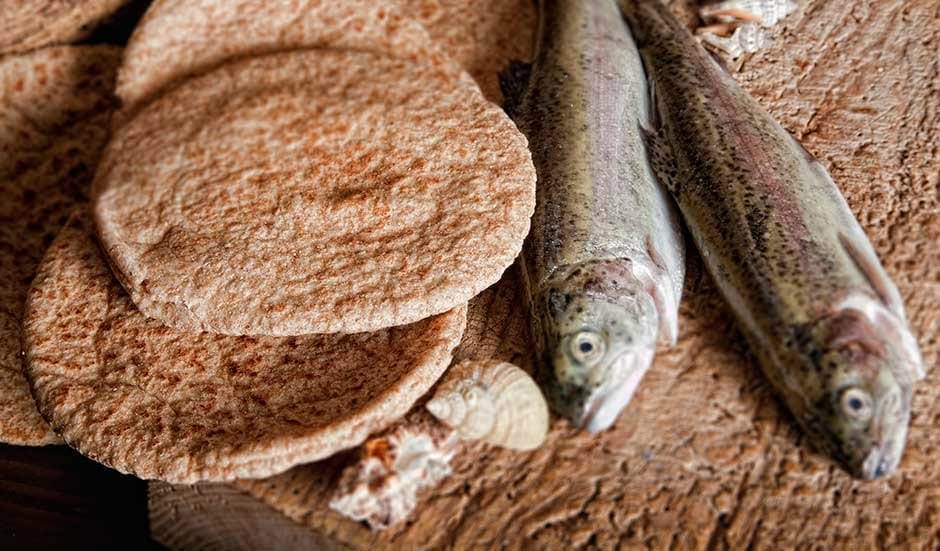I have a confession. For the last several weeks, I have made several attempts to write for this blog. Each time, I read and re-read the daily office readings for the day, or for surrounding days, then sat down at my computer to write down my thoughts. And, each time, my thoughts quickly devolved into an unreadable mess.
There are understandable reasons for this, not the least of which is the relative obscurity of the readings assigned for the tail-end of the liturgical year (which begins with Advent). Sometimes, I think the framers of the current Revised Common Lectionary were starting to run out of ideas this late in the cycle, so they just kind of threw a bunch of left-over scripture passages at the wall and called it a day. This is especially true for Old Testiment readings—recently, we were hit with passages from Maccabees and Nehemiah, which are both interesting as historical narrative but thin on spiritual inspiration.
Thanksgiving Day, thankfully, presents a welcome respite from all that, with assigned readings I can sink my teeth into. They are Deuteronomy 26:1-11, John 6:26-35, Joel 2:21-27, and 1 Thessalonians 5:12-24. The twin themes of bountiful harvest and gratitude to God for all that we have weave through all four.
The reading from Deuteronomy is the establishment of the Jewish ritual of bikkurim, or first fruits. The Israelites were commanded to take some of the first fruits of the harvest, bring them to the Temple, and offer them to God in thanksgiving for being delivered out of Egypt and given the “Land flowing with milk and honey.” The verse from this passage that speaks to me most, however, is the very last:
Then you, together with the Levites and the aliens who reside among you, shall celebrate withal the bounty that the Lord your God has given to you and to your house.
Celebrate God’s bounty, the scripture says, and do so together with powerful and powerless, citizen and non-citizen, native and foreign, rich and poor. Thanksgiving is a holiday to be shared with all, to sing of all that God has done for us, as in the passage from Joel.
Turning to the New Testament readings, Paul’s letter to the Thessalonians contains another wonderful verse (well, three verses, actually, but they form one thought):
Rejoice always, pray without ceasing, give thanks in all circumstances; for this is the will of God in Christ Jesus for you.
This dovetails nicely with the Franciscan admonition to preach the Gospel always, and if necessary use words. (This saying is widely attributed to St. Francis, but there is no evidence he actually said it.) Thanksgiving, after all, is just one day, but God deserves my thanks every day. Not just God, but so many people, things, places, events—they all deserve my thanks every day. I’m thankful just to be alive, to wake up each morning taking in my first conscious breath of the day. Each breath from then until I fall asleep again can be a prayer—breathe in “Lord Jesus Christ” and breathe out “have mercy on me, a sinner.”
The passage from John’s gospel wraps this up neatly. First, it’s important to put this reading in context: this scene takes place shortly after the so-called miracle of the loaves and fishes, where Jesus feeds five thousand with two fishes and five loaves of bread. In the reading, it is now the next day, and a crowd of people goes looking for Jesus, demanding more miraculous food. Jesus tries to explain to them that it’s not physical food they should be asking for, but spiritual food which comes from God. Oh, you’re like Moses, the crowd exclaims, giving us the bread (manna) from heaven. Jesus’ reply is a powerful bit of scripture:
Then Jesus said to them, ‘Very truly, I tell you, it was not Moses who gave you the bread from heaven, but it is my Father who gives you the true bread from heaven. For the bread of God is that which comes down from heaven and gives life to the world.’ They said to him, ‘Sir, give us this bread always.’ Jesus said to them, ‘I am the bread of life. Whoever comes to me will never be hungry, and whoever believes in me will never be thirsty.’
Think back on the miracle of the loaves and fishes. I don’t believe it was some kind of magical multiplication of substance; no, the miracle is that when people saw Jesus and his disciples sharing what little food they had, others who had brought some food themselves were moved to share what they had also, and so generously did they share that there were baskets of food left over. Jesus inspires us today by this example to share with others, even the aliens residing among us. We share in our abundance in thanksgiving for what God gives us. We share our physical food, and we share the love Jesus had for us with all those we meet. This is the real miracle, the true bread from heaven.




